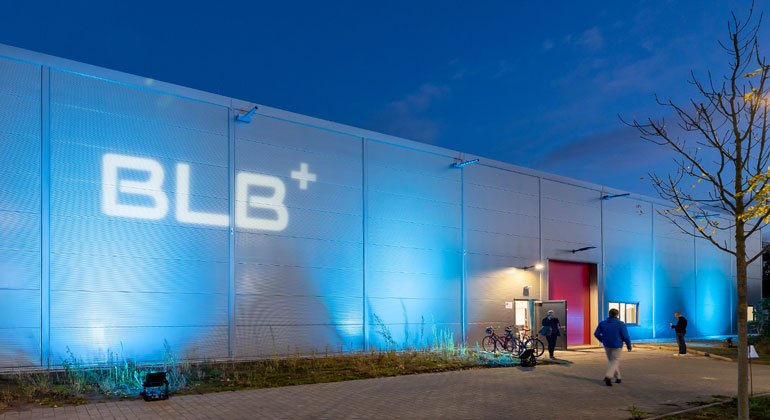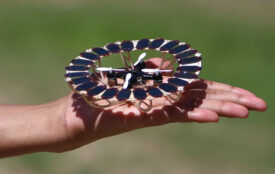Pilot Plant for Circular Battery Production
The nationwide expansion of electromobility and the energy transition require new, powerful, cost-effective and environmentally friendly battery cells.
For lithium-ion batteries to be sustainable, production waste and end-of-life batteries must be recycled and the materials must be kept in a closed material cycle. How this can be achieved technically and how new cells can be produced from these materials is the aim of the research in the CircularLab.
The researchers at the BLB CircularLab aim to achieve a closed cycle of battery materials, thereby ensuring sustainability and independence from critical raw materials. The main objectives are resource-conserving electrode and cell production and efficient recycling. To this end, existing production processes for electrode manufacture, such as drying technologies, are being investigated and optimised on a pilot, i.e. industrial, scale.
With its now three research facilities, ProductionLab, CircularLab and DiagnosisLab, the BLB research centre covers a large part of the life cycle and circular production of lithium-ion batteries, including characterisation in the various life phases: from material synthesis and functionalisation, through electrode, cell, module and system development and production, to the recycling of production waste and aged battery systems and the return of recyclable materials to the cycle.
“In recent years, BLB researchers have played a central role in numerous publicly funded research projects and have also been entrusted with the management of Germany-wide competence clusters. The engineers we have trained are not only driving forward the BLB’s research projects, which are funded with around 10 million euros per year, but also the development of the German battery industry after completing their doctorate or master’s degree,” says Prof. Arno Kwade, BLB spokesperson.
“With the Battery LabFactory, Braunschweig has become a centre for energy storage research with national and international appeal. Today’s opening of the BLB’s CircularLab is a new milestone for us in the expansion of our infrastructure and our research, which will make a significant contribution to the energy transition, but also to strengthening the economic power of our region,” said Prof. Peter Hecker, Vice President for Research and Early Career Scientists at TU Braunschweig.
“Research potential is effectively bundled in the vicinity of TU Braunschweig. With the Battery LabFactory, the science region is sending out another clear signal for future-oriented research,” says Lower Saxony’s Science Minister Falko Mohrs. “There is an urgent need for research into electromobility and batteries. The work of the Battery LabFactory is aimed at meeting our need for mobility in a sustainable way, so that our mobility is not at the expense of the environment.
Cell production plays a key role in the e-mobility value chain – the battery accounts for around 80 percent of the cost of the powertrain. The Federal Government therefore aims to establish mass production of new battery cells in Germany. In addition to electromobility, batteries will also play an important role in stationary energy storage.








